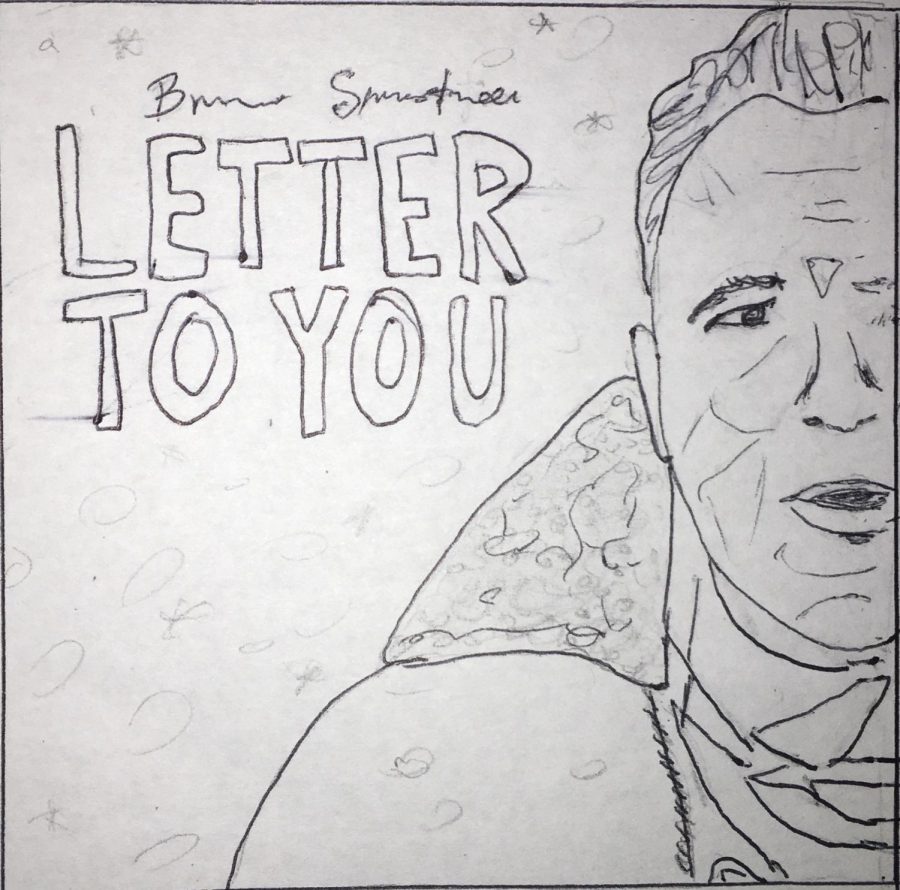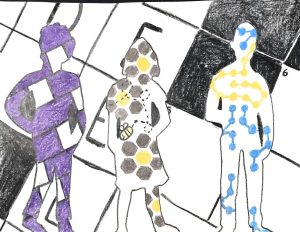Bruce Springsteen’s Reflective, Nostalgic “Letter to You”
December 3, 2020
Falcon Rating: 4/5
Most people have listened to Springsteen’s albums released in the 1970s and 1980s, where hits like “Born in the USA” cemented Springsteen into rock and roll fame. However, in one of the most difficult autumns for the world in decades, the 71-year-old Springsteen returns with a tender and human album in which he reconnects with the E Street Band, his band since 1972. Letter To You includes nine new songs and three released compositions from the 1970s.
This record is a tribute to his music and to rock and roll. It includes experiences Springsteen has felt with his co-musicians, from 1965 until today, describing the world he created with his fans. As with all written narratives, details are a fundamental factor in the credibility of a story. In Letter to You, Springsteen does not shy away from filling his songs with such references, providing a nostalgic glimpse on his past self.
The result is an album full of Springsteen bingo: trains, rivers, the edges of towns and women called Janey, and a number of things are on fire. Quite impressively, it was all recorded live, taking a record four days for Springsteen and the E Street Band. Three songs are old: one, the excellent “If I Was the Priest,” so vintage that Springsteen played it at his 1972 audition for Columbia Records’ A&R John Hammond. Another, “Janey Needs a Shooter,” nearly made it onto several Springsteen 1970s albums. And “House of a Thousand Guitars” paints a picture of an afterlife that sounds quite a bit like a guitar shop. Components of the album include numerous pitches and rhythms produced from a 1970s’ “Wall of Sound” that includes glockenspiels, saxophone expositions, and thousands of guitars. When Springsteen sings about the “good ol’ days,” this time, they’re his own.
The only times when Springsteen leaves the past are when he seems to be taking metaphorical jabs at Donald Trump. Indeed, as early as the 2016 election, Bruce Springsteen had taken a clear stand against Donald Trump. He is quoted saying, “He is a demagogue who proposes only super-simplistic solutions. His white nationalism is dangerous.” In the press conference he gave for the release of Letter To You, however, he did not hide his optimism: “Donald Trump will lose, I declare it to you here first. Joe Biden will prevail and our long-standing national nightmare will end.” Throughout the album, Springsteen describes a political agitator who tricks farmers into believing he can end a drought in “Rainmaker.” Moreover, there’s a reference to “the criminal clown [who] has stolen the throne steals what he can never own” in “House of a Thousand Guitars” that is clearly aimed at the president. These are songs that demand real-world action; perhaps Springsteen doesn’t believe he can leave everything up to the power of prayer.
As the final strains of “I’ll See You in My Dreams” faded to a close, I was struck with the following thought: if Letter to You was the swan song—if there were no more Springsteen albums after this one—this would be a mighty fine way to go out. That’s not the plan, of course. Springsteen himself has announced he still has more music to play, both live and in the studio. However, it does speak to the quality of Letter to You, both as a record within an already loaded catalogue, and a summation of a five-decade career spent translating hopes, fears, and dreams into life-changing rock songs.










